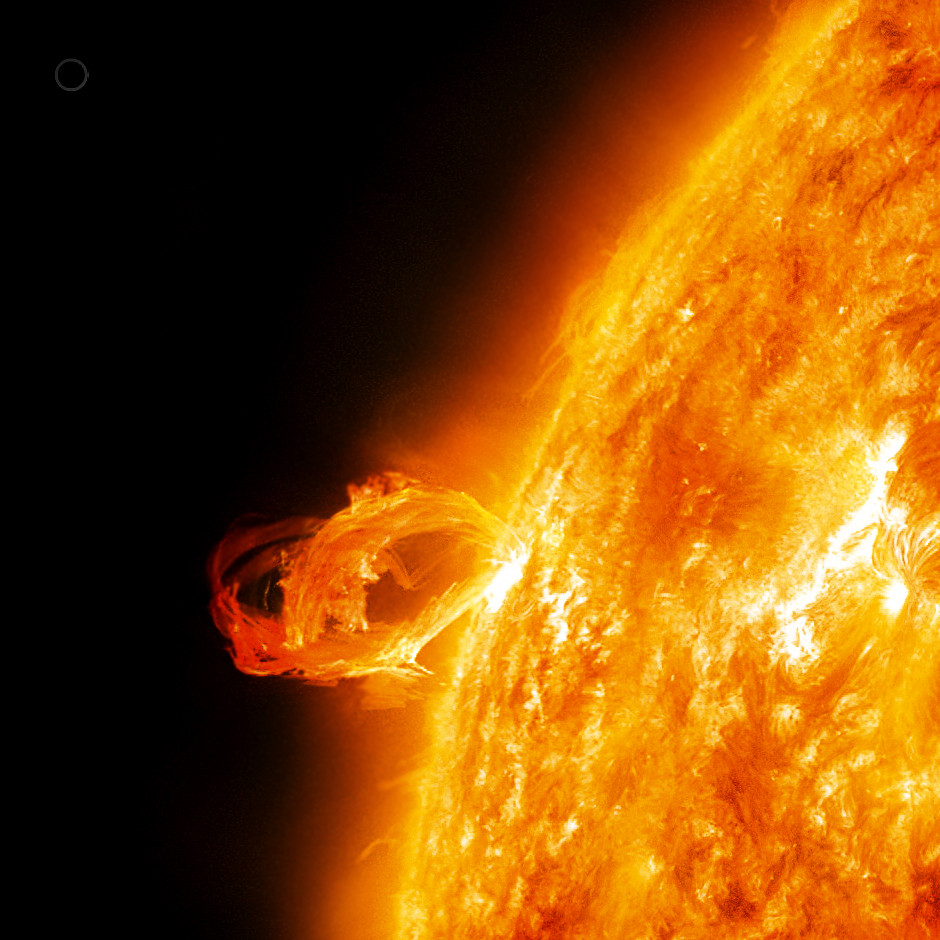Science News Roundup: Solar flares bathe swathes of Siberia in scarlet 'northern lights'; Europe targets competitive shake-up in space launch deal and more
This is the second-most planets so far discovered around any star beyond our solar system. France says Ariane 6 accord calls for public aid, 11% cost cuts French Finance Minister Bruno Le Maire on Monday hailed a new agreement on space launches between France, Germany and Italy, saying it secured funding for 42 launches of the delayed Ariane 6 and a return to service for Italy's grounded Vega-C.

Following is a summary of current science news briefs.
Solar flares bathe swathes of Siberia in scarlet 'northern lights'
Swathes of Russia and Ukraine were bathed in some of the strongest scarlet and green "northern lights" for years on Monday due to solar flares, according to pictures posted on social media and Russian media. The so-called "aurora borealis" bathed swathes of Siberia, the Urals, southern Russia and Ukraine in green, scarlet and purple overnight.
Europe targets competitive shake-up in space launch deal
Europe on Monday challenged the private sector to develop services for small rockets that could guide future space reform, while stabilising finances for troubled medium and heavyweight launchers for the coming decade. The head of the European Space Agency (ESA) said the decision to foster competition had long-term implications for the industry, which is wrestling with a short-term gap in space access due to delays and technical setbacks with Ariane 6 and Vega-C rockets.
Astronomers find seven planets being 'fried' by their star
In our solar system, little rocky Mercury is the planet orbiting closest to the sun, perpetually fried by solar radiation seven times more intense than what we experience on Earth. Astronomers using data obtained by NASA's now-retired Kepler space telescope have identified seven planets orbiting a star in our Milky Way galaxy, with all of them suffering the wrath of their star - radiant energy - even more brutally than Mercury. This is the second-most planets so far discovered around any star beyond our solar system.
France says Ariane 6 accord calls for public aid, 11% cost cuts
French Finance Minister Bruno Le Maire on Monday hailed a new agreement on space launches between France, Germany and Italy, saying it secured funding for 42 launches of the delayed Ariane 6 and a return to service for Italy's grounded Vega-C. The agreement covers the second batch of Ariane 6 launches after previous commitments covered an inaugural test flight, recently delayed to 2024, and 14 commercial launches.
Italy, France and Germany agree on launches of Ariane 6 and Vega-C
Italy, France and Germany on Monday have reached a deal underpinning future launches of the delayed Ariane 6 and Avio's smaller Vega-C rockets, Italy's industry minister said. Europe's new heavyweight launcher built by ArianeGroup - an Airbus-Safran joint-venture - has been delayed by technical glitches and is due to stage its first test launch in 2024, four years behind the original plan.
EU fine-tunes plan to launch Galileo satellites on SpaceX
The European Union has struck a tentative deal to launch four Galileo navigation satellites using Falcon 9 rockets of U.S.-based SpaceX, European officials said on Tuesday, in the latest sign of pressure caused by a gap in European launch capacity. The agreement spans two launches pencilled in for April and July next year, carrying two satellites each, EU Internal Market Commissioner Thierry Breton told reporters in Seville, Spain, following EU ministerial talks on competitivity in space.
Star-filled Euclid images spur mission to probe 'dark universe'
European astronomers on Tuesday released the first images from the newly launched Euclid space telescope, designed to unlock the secrets of dark matter and dark energy - hidden forces thought to make up 95% of the universe. The European Space Agency, which leads the six-year mission with NASA as a partner, said the images were the sharpest of their kind, showcasing the telescope's ability to monitor billions of galaxies up to 10 billion light years away.
ALSO READ
Energy Turmoil: Hungary and Slovakia Accuse Ukraine Over Pipeline Malfunction
Ukraine's Anti-Drone Defense: Covering Frontline Roads
Orbán's Energy Security Tightrope: Hungary's Growing Tension with Ukraine
Ukraine's Prosperity Package and Reconstruction Talks
Britain Bolsters Ukraine With New Support Package










